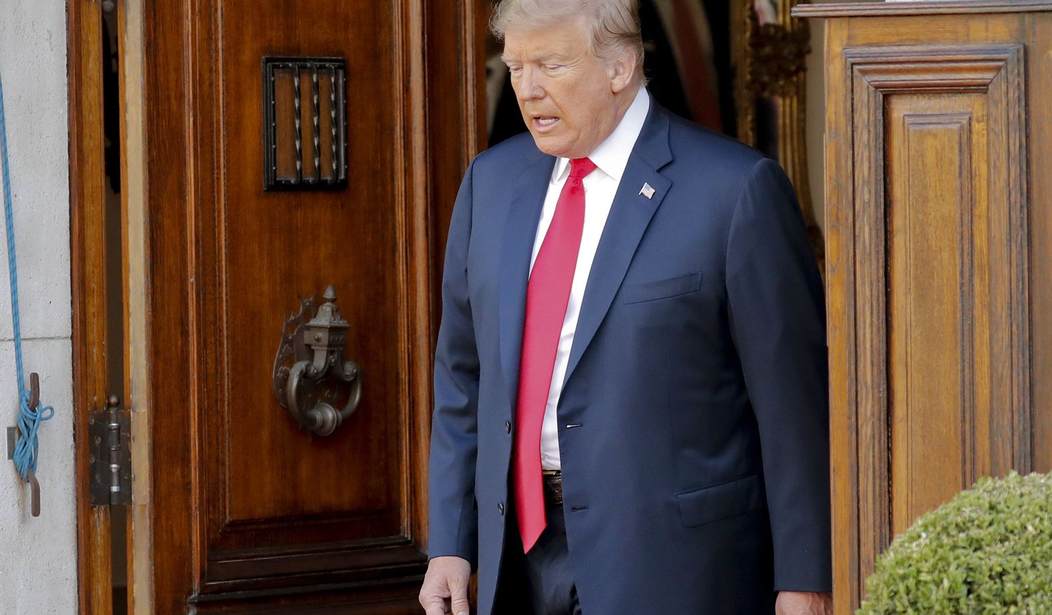When it comes to trade, we should take President Trump at his word. This is one policy area where he's been remarkably consistent over the years. That's why I'm always surprised whenever articles, TV commentators or friends in casual conversations argue that his real goal in boldly imposing unilateral tariff hikes is to achieve freer trade.
As we embark on a trade war, let's put this question to rest. Deep down, President Trump is not a free trader.
Nothing in what the president has ever said suggests that he's anything but a diehard mercantilist. Yes, it's true that he complains loudly of the treatment of U.S. exporters abroad -- treatment he no doubt wants to change. It's also true that he has endorsed dropping all tariffs around the world to zero.
But even these seemingly free-trade stances stem from fundamentally protectionist beliefs: First, that if there were no tariffs, U.S. exports would rise dramatically and surpass imports, shrinking the dreaded trade deficit. And second, that exports are great and imports are bad. In other words, America wins with low imports and high exports.
He is wrong on all counts. If the U.S. trade deficit were to ever disappear, America's economic health would take a turn for the worse. As long as the United States is growing and remains an attractive place to invest, we will continue to run a trade deficit with the rest of the world.
The reason is simple: Foreigners sell goods and services to U.S. consumers in order to acquire precious American dollars. They want these dollars in part so they can buy exports. But they also want to invest in America's powerful economy, including buying some of Uncle Sam's debt.
Recommended
As long as foreigners find it profitable to invest here, they'll continue selling stuff to us -- stuff that improves our standard of living. This reality means Trump's obsession with increasing exports relative to imports is misguided.
The imports are a means to achieve what Mark Perry of The American Enterprise Institute calls "job-generating foreign investment surpluses for a better America."
That also means that a world with no tariffs will not necessarily translate to a lower U.S. trade deficit. Sure, it might increase our exports. But lowering the deficit would practically require an increase in imports so that foreigners can acquire the dollars to buy those additional exports. Thus the president would likely hate the outcome of a zero-tariff world, putting us back where we are today.
But at the very least, could bullying our trading partners succeed in opening up more opportunities abroad? President Trump is right that some countries' protectionist policies are making it hard for American exporters to sell their goods.
Unfortunately, the answer is probably still no.
For one thing, unilaterally increasing tariffs against other nations has never been an effective way to get them to lower theirs. Other government officials, often protectionists themselves, use the attack as an excuse to raise their own tariffs even higher to protect domestic interests. Retaliation from Mexico, Canada, China and the European nations is proving this point once again.
Furthermore, there is something depressing in the belief, held by many exporters, that the damage here at home from import tariffs -- which is paid for by thousands of companies "downstream" in the production process and their millions of workers -- is an acceptable price to pay. How many Americans need to lose their jobs in the name of a few specific exporters selling more goods abroad? When do we decide that price is too high?
Historically, the only way the United States has managed to get other countries to drop their trade barriers has been through multilateral agreements where everyone commits to behaving better. It is not a perfect process, but it beats pretending that Trump's protectionism will do any good.

























Join the conversation as a VIP Member